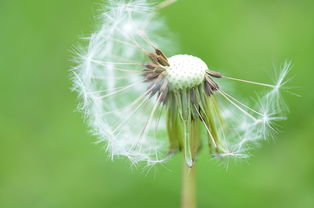英国艺术学校怎么报名
Title: Navigating the Landscape of Art Competitions in the UK
Art competitions in the United Kingdom offer artists a platform to showcase their talent, gain recognition, and sometimes even secure opportunities for advancement in their careers. Navigating this landscape requires a combination of talent, strategy, and understanding of the competitive environment. In this guide, we'll delve into the intricacies of art competitions in the UK, offering insights and guidance for both aspiring and seasoned artists.
The UK boasts a diverse array of art competitions, catering to various mediums, styles, and levels of expertise. From prestigious national contests to local exhibitions, artists have ample opportunities to participate and gain exposure.
Types of Art Competitions
National Competitions: These are typically largerscale contests with broader participation and significant recognition. Examples include the BP Portrait Award and the Royal Academy Summer Exhibition.
Regional Competitions: Local art societies, galleries, and institutions often organize competitions specific to their area, providing artists with a platform to connect with their community.
ThemeSpecific Competitions: Some competitions focus on particular themes, subjects, or mediums, allowing artists to explore their creativity within defined parameters.
Emerging Artist Competitions: These contests are tailored to support and promote emerging talents, offering valuable exposure and sometimes financial rewards.
Participating in art competitions requires thoughtful preparation to maximize your chances of success. Here are some key steps to consider:
1. Research
Familiarize yourself with various competitions, their requirements, judging criteria, and past winners. Identify those that align with your style, medium, and career stage.
2. Create Outstanding Work
Invest time and effort in producing highquality pieces that showcase your unique artistic voice. Pay attention to craftsmanship, concept, and execution.
3. Read Guidelines Carefully
Ensure that you understand and adhere to all submission guidelines, including deadlines, entry fees, image specifications, and any specific requirements.
4. Document Your Work Professionally
Present your artwork in the best possible light by photographing or documenting it professionally. Highquality images can significantly enhance your submission.
5. Craft a Compelling Artist Statement
Art competitions often require an artist statement or description. Take the time to articulate your inspiration, process, and intentions behind each piece.
Once you've selected the competitions you want to enter and prepared your artwork accordingly, it's time to navigate the submission process.
1. Submitting Online
Many competitions now accept online submissions. Make sure to follow the instructions carefully, upload highresolution images, and complete all required fields accurately.
2. Packaging for Physical Submissions
If submitting physical artwork, pay attention to packaging to ensure safe transportation. Include clear labeling and any necessary documentation.
3. DoubleCheck Before Submission
Before finalizing your submission, doublecheck all details, including your artwork, artist statement, and entry form. Any errors could potentially impact your chances.
After submitting your artwork, the waiting game begins. Here's what you can expect:
1. Notification Timeline
Most competitions will provide a timeline for when you can expect to hear back about the results. This can vary widely, from a few weeks to several months.
2. Handling Rejection
Rejection is a common part of the artistic journey. If your work isn't selected, don't be discouraged. Use it as an opportunity to learn, grow, and refine your craft.
3. Celebrating Success
If your work is chosen, congratulations! Take pride in your achievement and use it as momentum to propel your career forward. Make the most of any opportunities that arise from your success.
Art competitions in the UK offer artists a valuable platform for exposure, recognition, and growth. By understanding the landscape, preparing thoughtfully, and navigating the submission process strategically, you can maximize your chances of success and further your artistic career.











